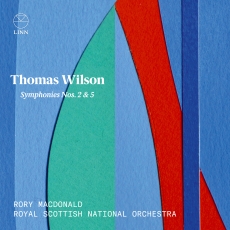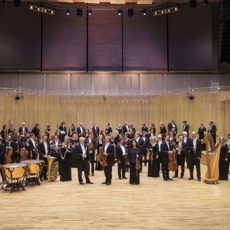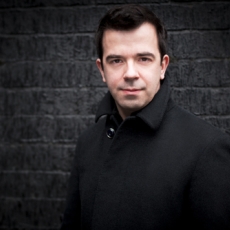Rory Macdonald & RSNO - Thomas Wilson: Symphonies Nos. 2 & 5 - Vox Carnyx
Following on from their excellent recorded coupling of Thomas Wilson’s Third and Fourth Symphonies on the Linn label, conductor Rory Macdonald and the Royal Scottish National Orchestra now turn their attention to the Second and Fifth.
This effectively completes the series, given that Wilson, who died in 2001 aged 73, withdrew his First Symphony after only its second performance in 1960, unconvinced of its worth. As a result – and unless there are plans to release the discarded score for performance – these two symphonies, written 33 years apart, are effectively bookends to Wilson’s symphonic output.
Wilson was a trendsetter in the functional sense. His decision to base his career in Glasgow – whereas, previously, Scots composers seeking career opportunities felt compelled to go to London – paved the way for future generations of Scots-based creatives, from the likes of Eddie McGuire and William Sweeney to such younger luminaries as James MacMillan and Stuart MacRae.
Musically, he was of his generation, a style that wrestled with the conflicting questions posed by the postwar European avant-gardists, and a craftsmanship capable of shaping the answers in his own fashion. We hear harmonic dissonance and melodic austerity enclosed within vigorous rhythmic structuring and a fundamental reliance on tonality. Bartok comes to mind, as does Walton, but with a personal twist.
The Second Symphony, premiered in 1965, is a confident and characterful assertion of that ambivalence. Its clear-minded structure – a three-movement format that opens in brooding darkness but with immediate clear and convincing intent – embraces intellect and emotion in equal measure. The powering inevitability of a substantial opening movement not without its tender cameos; the mutable agitation of the central movement; the pugnacious Walton-inspired urgency of the finale: all are addressed with clear-minded singularity by Macdonald, begging the question, why is this work not performed more often?
The Fifth Symphony grew out of material from an earlier 1980s work, Mosaics, written for the then chamber ensemble offshoot of the RSNO, Cantilena. It’s not surprising, therefore, to find this symphony scored for economic forces. It was premiered in 1998 by the Scottish Chamber Orchestra under Joseph Swensen.
Set out as one subdivided movement, the musical signature is not worlds removed from the Second Symphony. But there is a self-satisfying reassurance in Wilson’s musical discourse that, besides reflecting the quiet, experienced confidence of the older mind, adds eloquence and composure to a voice that still harbours capricious thoughts.
The symphony opens and closes in shadowy tones, more pensive than threatening, between which the narrative ricochets from introvert retrospection to outward glee. And with such lucid, uncluttered instrumentation the opportunity is not lost in this crisp, thoughtful performance to savour the riches of Wilson’s intricate scoring and the unpretentious profundity of his expressive voice.
It’s wonderful that the RSNO has created this tangible legacy. As so often happens, it takes time beyond a composer’s death for honest and objective reappraisal to be possible. On this evidence Wilson’s symphonies surely deserve an afterlife, and not just on disc.


